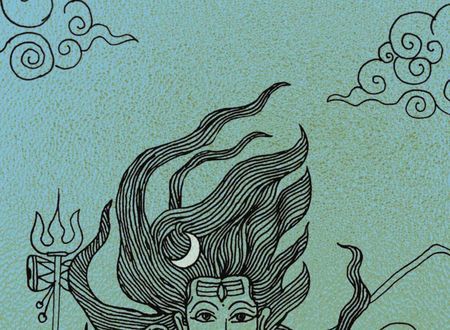I’ve read 100+ books in the last couple of years.
I loved the journey. Choosing breadth over depth meant I got an introduction to various ideas. The time is right to choose a small selection of books and re-read them.
In addition to re-reading them, I intend to take actionable notes and incorporate some of the advice in my life.
Here are ten books that I plan to re-read in the coming days and weeks.
1 — How to Live by Derek Sivers
I’ve read 1000+ books. How to Live by Derek Sivers is the best book I’ve read.
I know that I’ve made a strong statement. How to Live gives me goosebumps each time I read it. Before I can digest one ‘aha’ moment, the next sentence gives me a bigger ‘aha’ moment. The book contains just 113 pages, but each sentence is loaded with meaning. The wisdom in the book is actionable as well as delightful — a rare combination.
As one reviewer noted, I want to highlight every sentence in the book.
I’ve read How to Live (counting audiobook listens) at least ten times.
And I will continue reading it — I’m shooting to read it 100 times to imbibe the sublime wisdom in this book.
Sivers lists 27 strategies on how to live a good life. Each strategy supposedly contradicts the others. But is that true? Read the book, read the quirky conclusion, and see for yourself.
2 — The One Thing by Gary Keller
Take up one idea. Make that one idea your life — think of it, dream of it, live on that idea. Let the brain, muscles, nerves, every part of your body, be full of that idea, and just leave every other idea alone. This is the way to success. — Swami Vivekananda
Gary Keller echoes Swami Vivekananda’s idea.
He delves deep into the strategies to pursue that one important thing and how to overcome the distractions that steal our energies.
I’m guilty of scattering my energies in multiple directions.
The One Thing is exactly what the doctor ordered.
3 — The Wellness Sense by Om Swami
I read The Wellness Sense in 2014.
Swamiji introduced me to the world of Ayurveda. When we have a headache, we pop a paracetamol pill. It cures the symptom. The root cause remains unaddressed, though. Ayurveda goes beyond and gets to the bottom of things.
As my tenure in the thirties are coming to an end, it is time to pay attention to all things health.
The Wellness Sense is literally what the doctor ordered.
4 — Daily Laws by Robert Greene
This book contains 366 of Robert Greene’s best pieces of wisdom.
The best strategies from all his books (48 Laws of Power, The Art of Seduction, Mastery, 33 Strategies of War, The Laws of Human Nature), are collected together in one piece.
The result is some of the most practical pieces of wisdom I’ve come encountered.
5 — The War of Art by Steven Pressfield
Have you wanted to pursue any creative project but gave it up after getting cold feet?
Steven Pressfield tells you the name of the culprit responsible for said cold feet: Resistance.
Pressfield has written three books that deal with the importance of overcoming resistance. The War of Art is the first book in this trilogy and the most famous among the three.
While I’ve overcome Resistance to a fair extent, Resistance still rears his ugly head when I can least afford it.
This means it is time to revisit The War of Art.
6 — Atomic Habits by James Clear
No zero days.
That’s James Clear’s mantra.
Do one push-up. Read one page of a book. Write one line of code. Journal 1 paragraph. But don’t skip a day.
I work well in bursts. This means that I struggle to build habits. This further means I should turn to Atomic Habits.
7 — So Good They Can’t Ignore You by Cal Newport
It is well-documented that musicians, sportsmen and artists should put in hours of practice to get good at their skill.
Cal Newport suggests that everyone should adopt this approach and build “career capital” — become so good that “they can’t ignore you.”
Newport presents plenty of case studies, and makes compelling arguments to eschew a grand sense of ‘purpose’ or to chase passion rabbit holes.
I first read this book in 2016. Having read books that illustrate the importance of mastery and deliberate practice (Peak by Anders Ericsson, Talent is Overrated by George Colvin, Grit by Angela Duckworth, Mastery by Robert Greene to name a few), I look forward to read Newport’s classic with a renewed sense of respect.
8 — Hyperfocus by Chris Bailey
A focused life is a good life.
Smartphones, social media, email and so many other factors mercilessly steal our focus.
I’ve incorporated some of his ideas into my life:
- Remove the email app from my phone
- Disable notifications from my phone
I am yet to implement some of the amazing advice:
- Identify what functions each of my devices will perform.
- Read an email only when I have the time to respond to it.
Having read this incredible book in 2021, I am listening to the audiobook now. The book is inspiring and I now have an opportunity to reclaim my attention and do deep work.
Having read this incredible book in 2021 (and implemented some of the strategies that Bailey suggests), I am listening to the audiobook now. The book is inspiring and I have an opportunity to reclaim my attention and do deep work.
9 — The Life Changing Magic of Tidying by Marie Kondo
I’ve spent my life living in clutter.
I rather like Marie Kondo’s strategy — do a one-time clean sweep of my belongings and retain just the ones which give me great joy. This way I surround myself with belongings that delight me.
This is easier said than done. Evolution has wired me to hoard stuff for a rainy day. Today’s world has more things than I need, but my brain still thinks we are in caveman days and asks a harmful question: “How can I get rid of it? What if I need it?”.
I’m counting on The Life Changing Magic of Tidying to help me reprogram my brain to stop this incessant and mindless hoarding.
10 — The Psychology of Money by Morgan Housel
I read this book after reading Swamiji’s article based on The Psychology of Money. Soon after I read it, I saw this book becoming a cult classic over the internet.
This book introduced me to a few ideas that have stayed:
- Wealth is what you don’t see.
- Financial experts (and everyone else) operate based on their upbringing. This means advice from one expert can vary drastically from another expert’s perspective.
It’s been more than two-and-a-half years since I read this book. I plan to re-read this book and take notes on money advice that appeals to today’s version of me.
Image Credit: Shiromani Kant from Unsplash









Comments & Discussion
44 COMMENTS
Please login to read members' comments and participate in the discussion.